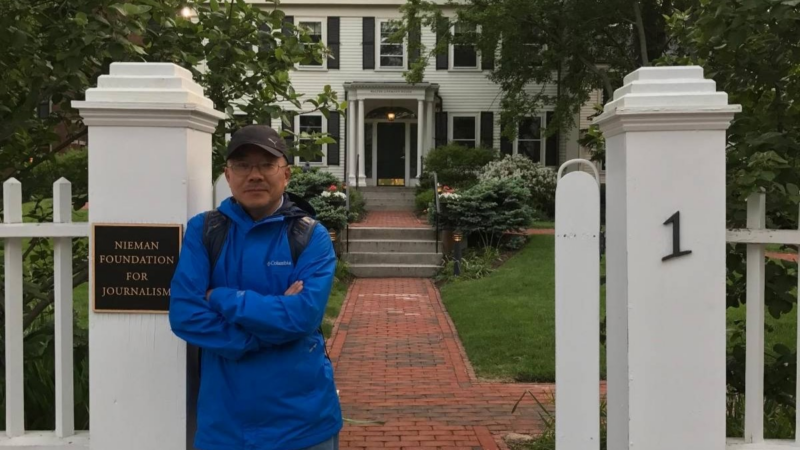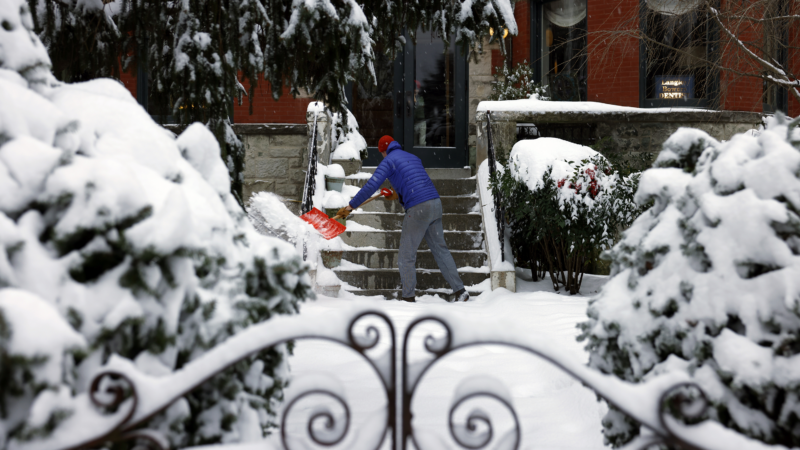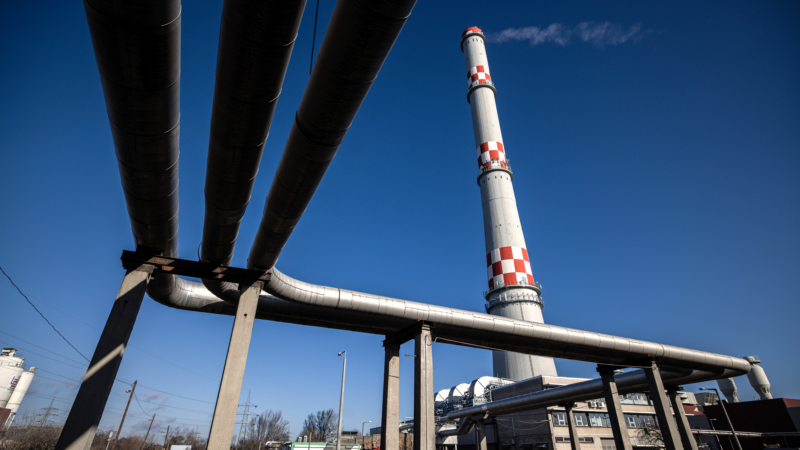China sentences veteran journalist on espionage charges
TAIPEI, Taiwan — China has sentenced a longtime Chinese state media journalist to seven years in prison on charges of espionage, in a case press freedom advocates have criticized as opaque and politicized.
Dong Yuyu, 62, had been detained while lunching with a Japanese diplomat at a Beijing hotel in February 2022 and held for half a year in a secret location before being formally charged with espionage, a charge he denied, his family says.
The 7-year sentence, delivered in a Beijing court on Friday, came after months of delays in Dong’s sentencing. As in all cases China deems related to national security, Dong’s trial was held in secret, with no press or family present, and the court provided no records of the testimony or evidence to the public.
“Yuyu is being persecuted for the independence he has demonstrated during a lifetime spent as a journalist,” his family said in a statement.
On Friday, Dong’s lawyers and family were allowed in court for the sentencing judgement, which was read aloud but not shared in writing. The sentencing accused Dong of inappropriately sharing information with two Japanese diplomats, including its then-ambassador to China, according to a statement from Dong’s family.
Well-known among academic and diplomatic circles for his liberal writings and scholarship, Dong worked for decades as a journalist and editor at Guangming Daily, a Communist Party-run publication. He often traveled abroad and met with foreign experts in China, exchanges he always disclosed but which his family now believes may have led to his arrest.
“He is the epitome of the kind of people-to-people exchanges that China has been working so hard to establish and maintain for the past 30 years,” the National Press Club, an advocacy organization based in Washington, said in a statement after Dong’s trial concluded in 2023. “That era is now over.”
More than 60 academics, former diplomats, and journalists have signed an open letter protesting his arrest.
From 2006-2007, Dong studied at Harvard University after receiving its prestigious Nieman journalism fellowship. In 2010, he was a visiting fellow at Japan’s Keio University, and in 2014 he spent the year as a visiting professor at Hokkaido University.
He wrote openly on how he believed China’s ruling Communist Party could improve its governance but was no dissident or revolutionary. In 2002, the state-administered All China Journalists Association gave Dong an award for a commentary piece he authored which praised the achievements and plans of the Communist Party.
“Yuyu will now be known as a traitor in his own country, instead of being recognized as someone who always fought for a better Chinese society,” his family said.
More fires erupt in Southern California and spread to the Hollywood Hills
Three new fires broke out in Los Angeles and Ventura counties on Wednesday. California Gov. Gavin Newsom said more than 7,500 personnel are helping in the response to the infernos.
Special ed students benefit from being integrated at school. It doesn’t always happen
Research shows including students with and without disabilities in the same classroom can benefit everyone. Two students with Down syndrome show what can be gained when that happens.
U.S. stock markets close to honor former President Jimmy Carter
The New York Stock Exchange and the Nasdaq will both observe Thursday's national day of mourning in a Wall Street tradition dating back to 1865.
All 5 living presidents expected to attend Jimmy Carter’s National Cathedral funeral
President Biden is expected to deliver a eulogy to former President Jimmy Carter at the National Cathedral service.
A major winter storm will bring snow to the South. Here are tips from winter experts
Southern states don't often deal with winter conditions, but New England does. New Hampshire especially has tips for how to prepare for a winter storm.
Here’s what’s behind Russia cutting off its last gas line to Europe
A decades-long Russian-Ukrainian transit gas deal to Europe ended on Jan. 1. For now, the most acute effects are being felt in a region called Transnistria, on the eastern edge of Moldova.







